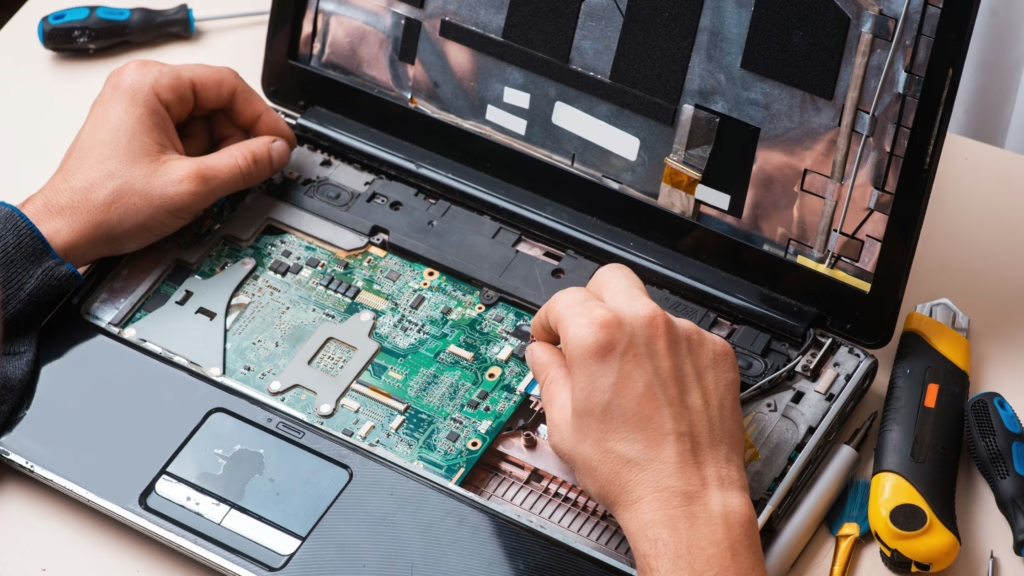Beyond Recycling: How Refurbished Tech is Powering South Africa’s Circular Economy
What happens to your tech when you’re done with it? If your answer stops at “recycling,” you’re only seeing half the story. In South Africa, where e-waste is growing rapidly, a new narrative is emerging—one that’s not just about disposal, but about revival. And that’s where refurbished tech comes in.
At RADtech, we’ve seen firsthand how giving IT equipment a second life can drive real impact—for the environment, for local businesses, and for the economy. It’s not just a feel-good initiative. It’s smart business and smart sustainability.
Why Refurbishment Matters More Than Ever
While recycling remains a vital piece of the e-waste puzzle, it often comes too late—after materials have already been wasted or damaged. Refurbishment steps in earlier. It prevents waste by extending the useful life of electronics.
In a country where access to affordable, quality tech is still unequal, refurbished devices fill a critical gap. Schools, small businesses, NGOs, and startups can all benefit from IT equipment that’s both budget-friendly and performance-tested.
And unlike recycling, which often depends on heavy processing and export, refurbishment is local, job-creating, and circular by design.
The Circular Economy in Action
The circular economy is more than a buzzword. It’s a shift in mindset—from take, make, and throw away, to reuse, repair, and regenerate.
Refurbished technology is at the heart of this shift. Here’s how:
-
Asset recovery: Through IT Asset Disposition (ITAD), companies can recover value from old tech, rather than letting it gather dust or be dumped illegally.
-
Certified data erasure: Tools like BitRaser ensure sensitive data is wiped clean before resale, giving peace of mind and compliance with POPIA.
-
Testing and compliance: Refurbished devices are professionally tested and meet EWASA and OEM standards. This isn’t “second-hand junk”—it’s tech that performs like new.
-
Reduced carbon footprint: Manufacturing a new laptop can emit up to 300kg of CO₂. Refurbishing cuts that down by as much as 80%.
Good for Business, Great for Brand
South African companies are under growing pressure to reduce their environmental impact. Choosing refurbished equipment (or responsibly disposing of existing assets) sends a powerful signal—not just to shareholders, but to employees and customers too.
At RADtech, we work with businesses to implement sustainable IT practices that support both their bottom line and their brand reputation. Whether it’s through supplying certified refurbished desktops or handling end-of-life equipment with full chain-of-custody reporting, we help companies become part of the circular economy story.
From Dumping Grounds to Opportunity Hubs
Let’s be honest—South Africa has long struggled with illegal dumping of electronic waste. But the flip side is full of potential. Imagine communities where old laptops are repaired, refurbished, and resold. Imagine young people trained in tech repair, creating value where there was once only waste.
That’s the future we’re building toward. And it starts with one simple question: What if your next device didn’t have to be brand new?
Take the Smarter, Greener Route
Refurbished tech isn’t a compromise—it’s a smarter choice for your budget, your business, and the planet.
Ready to join the circular economy?
Shop certified refurbished tech
Looking to dispose of your IT assets securely and sustainably? Book an audit with us
Let’s go beyond recycling. Let’s reinvent how South Africa does tech.
#RADtechPtyLtd #CircularEconomy #RefurbishedTech #EWasteSolutions #SustainableIT #ITAssetManagement
Next blog: Empowering South Africa’s E-Waste Warriors: How Training Small Recycling Businesses is Transforming the Industry

